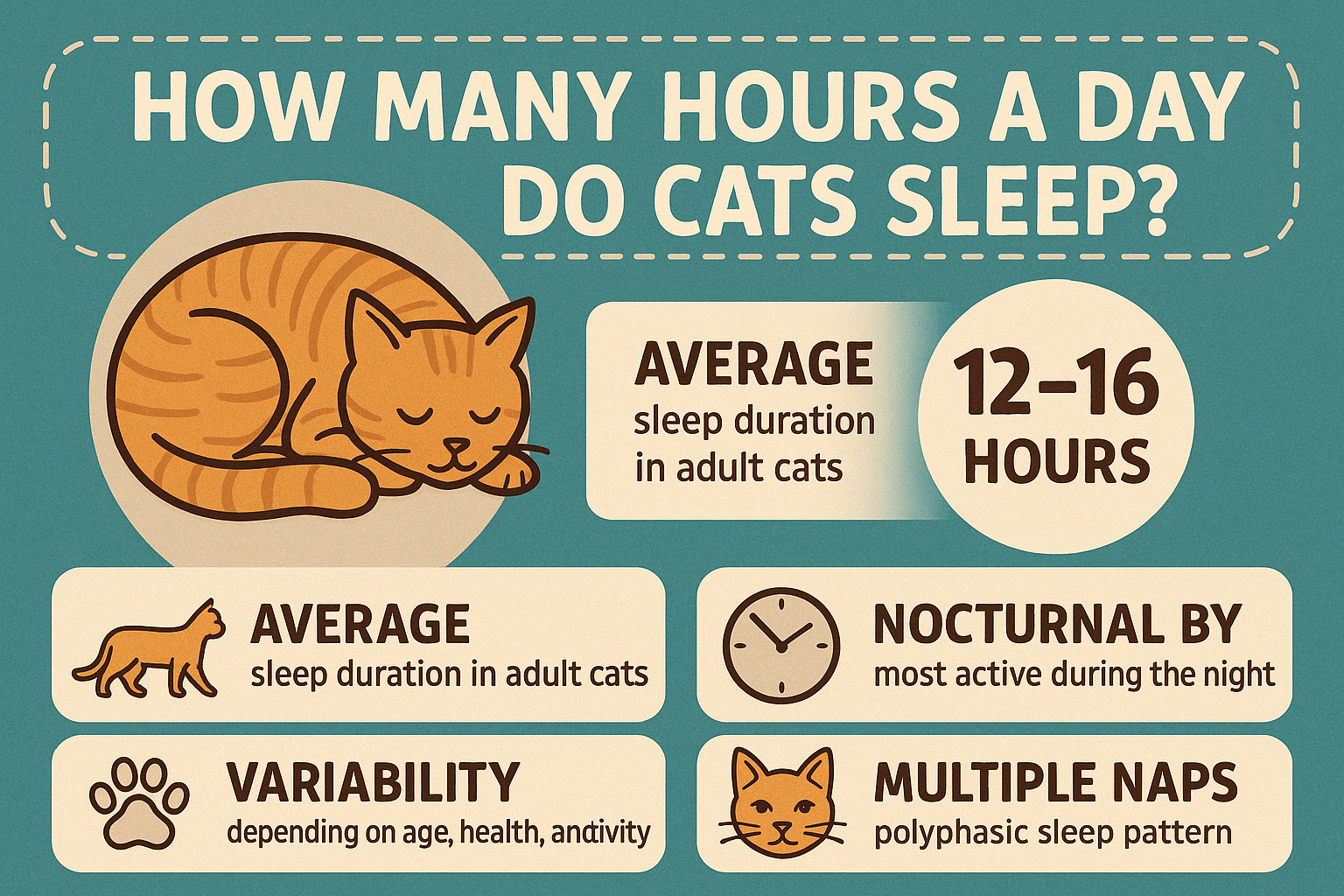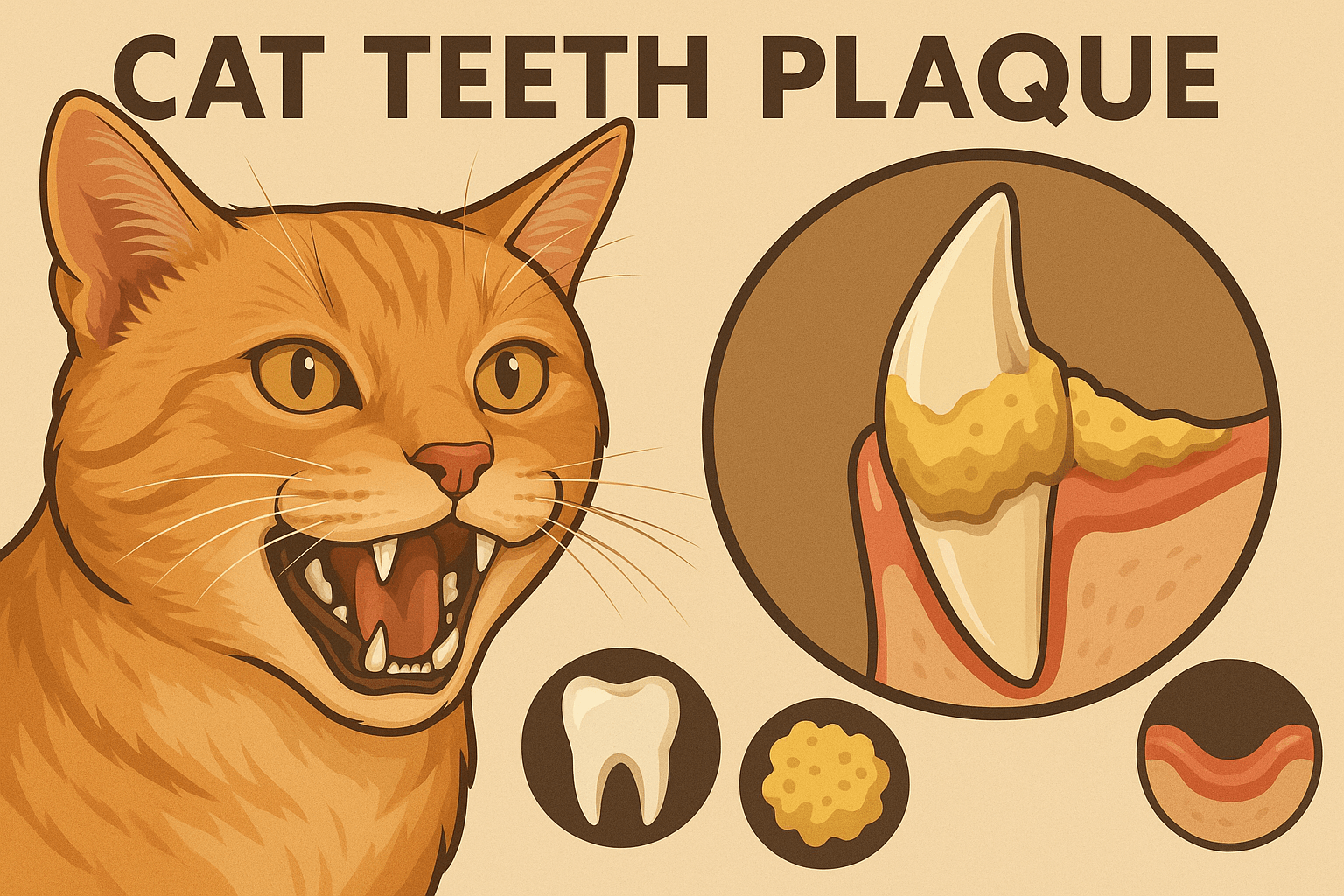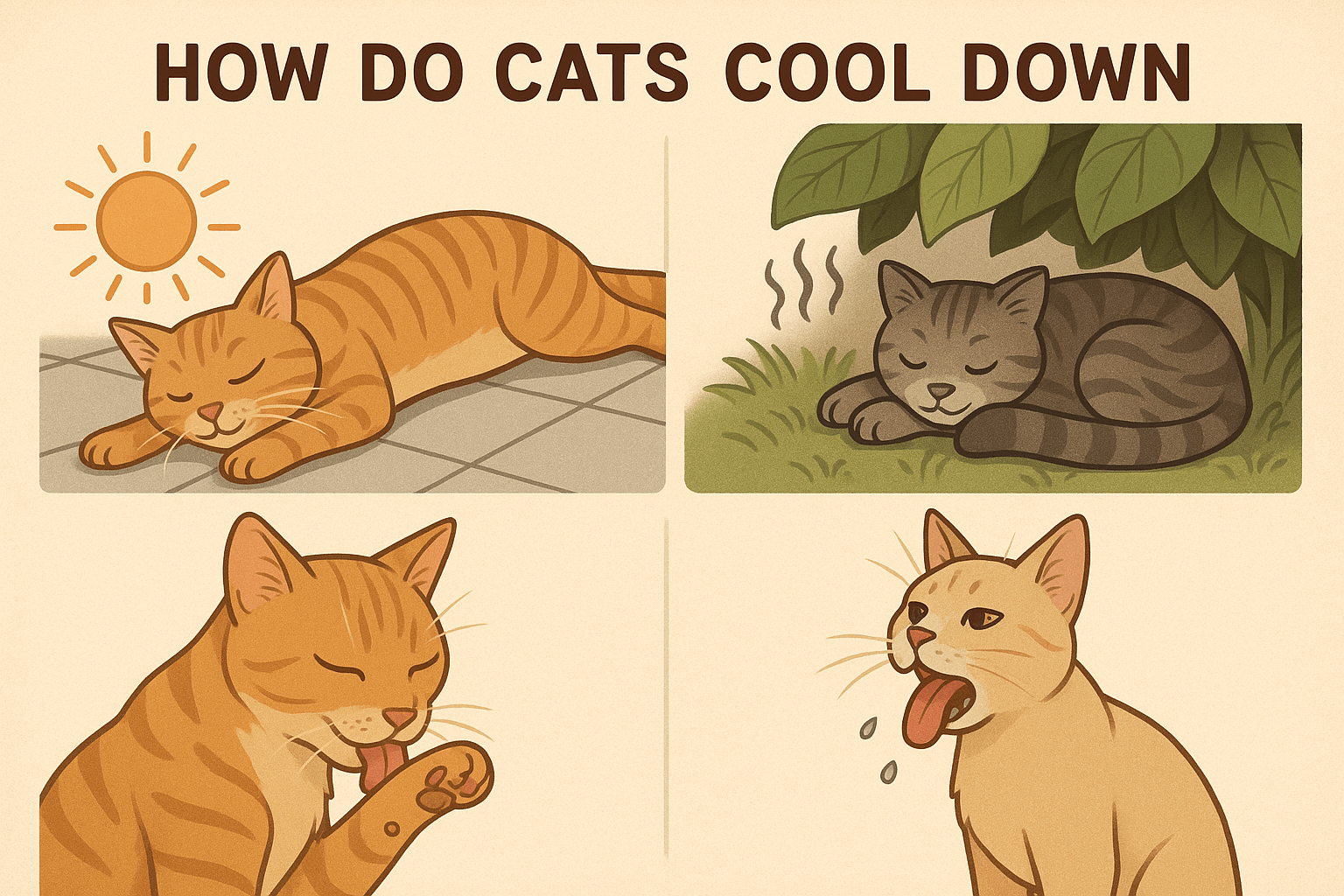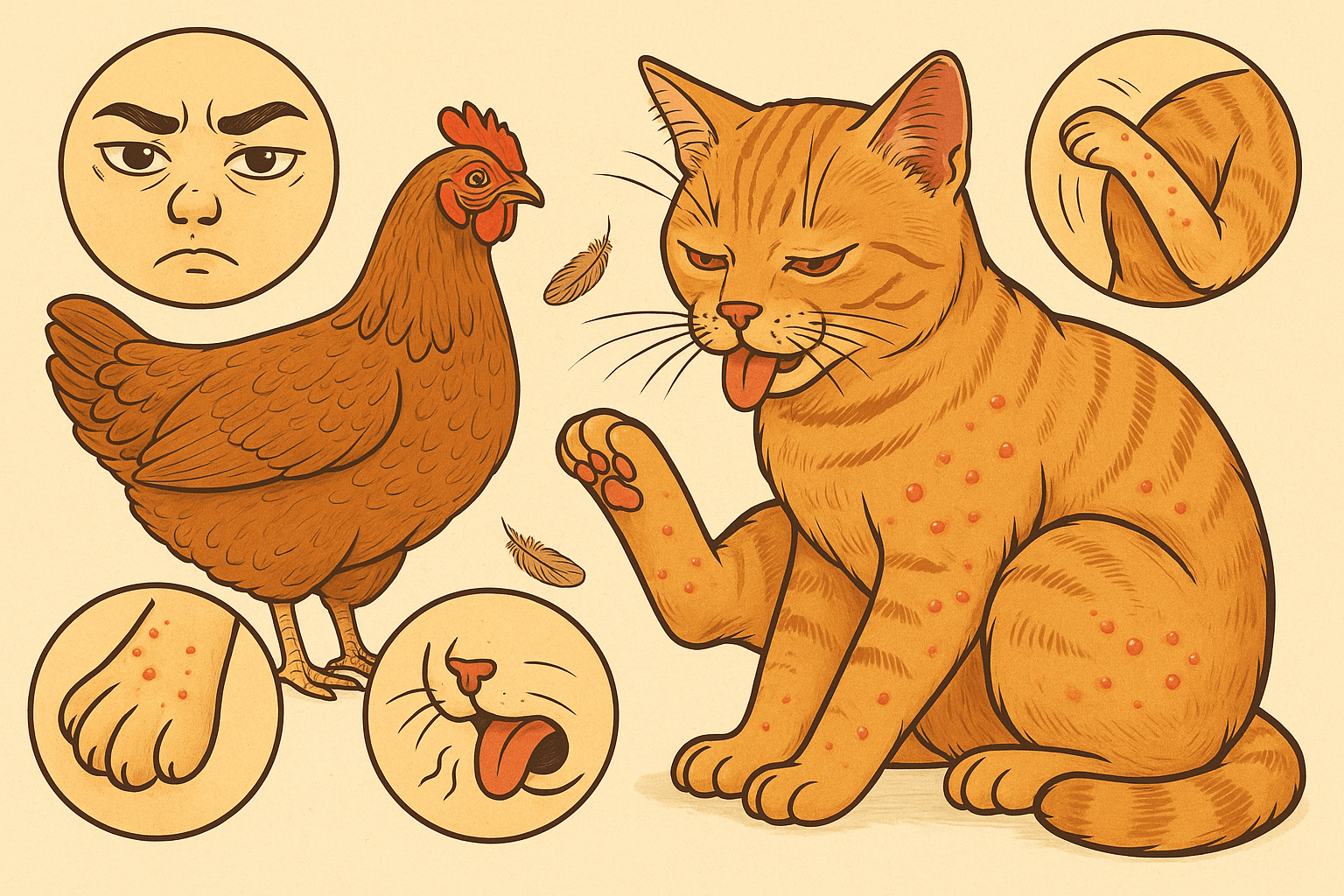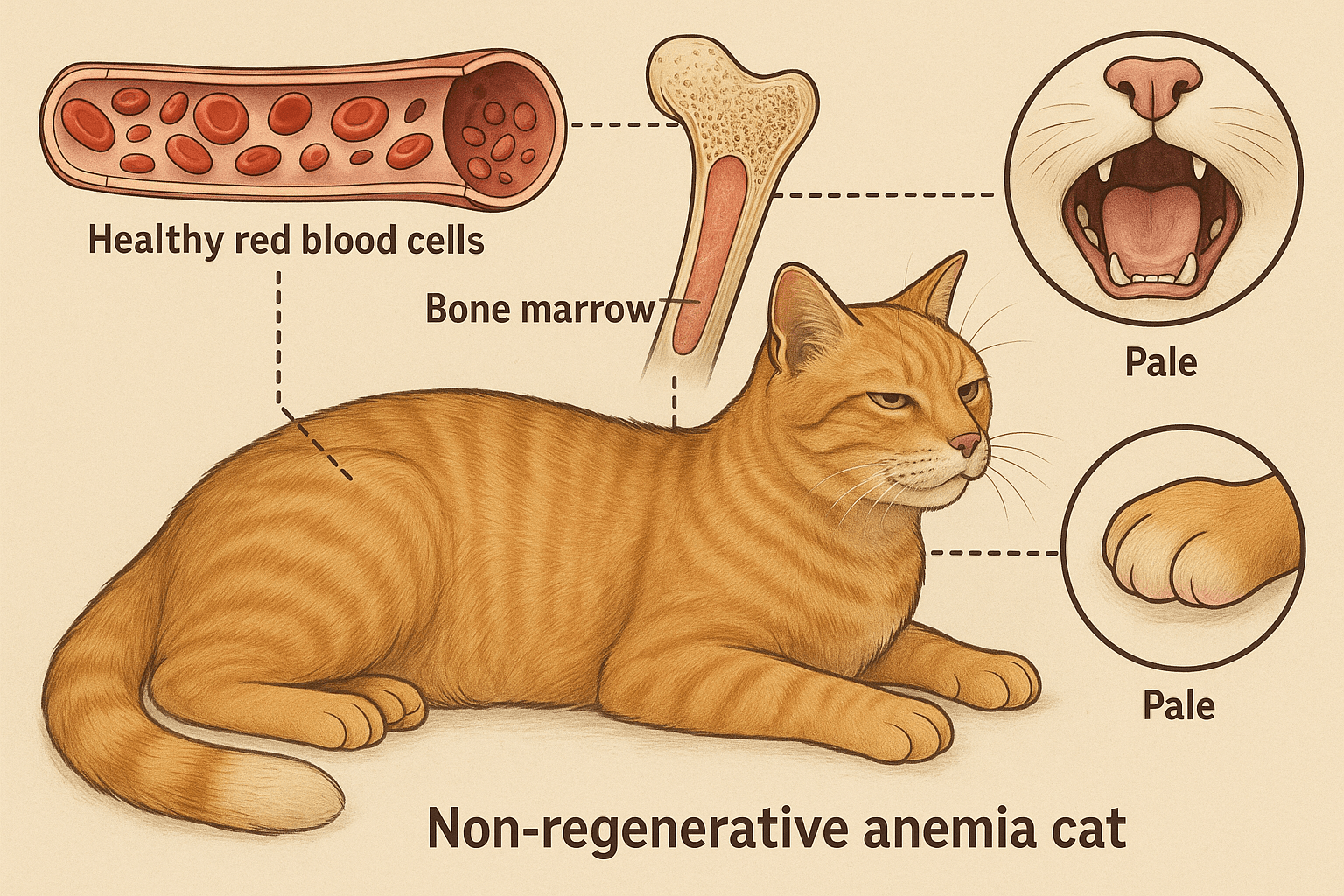How Many Hours a Day Do Cats Sleep?
Cats are notorious for their love of sleep, often spending the majority of their day in dreamland. But have you ever wondered why they sleep so much or how many hours a day is considered normal? On average, cats sleep between 12 to 16 hours a day, with some even clocking up to 20 hours during kittenhood or old age. This impressive amount of rest is deeply rooted in their biology and behavior. Whether you’re a new cat owner or simply curious about your feline friend’s habits, understanding their sleeping patterns can help you ensure they’re healthy and happy. Let’s dive into the fascinating world of cat naps and explore what’s behind their sleepy lifestyle.
Why Do Cats Sleep So Much?
Cats’ sleeping habits are influenced by a combination of evolutionary traits, energy conservation, and natural instincts. Here’s why your feline companion spends so much time snoozing.
Nocturnal Hunting Instincts:
Cats are crepuscular hunters, meaning they are most active during dawn and dusk. Their long naps help conserve energy for these high-intensity periods.Energy Conservation:
In the wild, hunting requires bursts of energy. Domestic cats retain this instinct, sleeping extensively to prepare for potential “hunts” around the house.Genetic Programming:
Cats evolved to survive in environments where food was scarce. Sleeping reduces calorie expenditure, ensuring they’re ready for opportunities to eat.Warmth and Comfort:
Cats often sleep more when it’s cold, curling up to conserve body heat. Their cozy sleeping spots mimic the safety of dens in the wild.Age and Activity Levels:
Kittens and senior cats tend to sleep longer due to growth spurts or reduced mobility, while adult cats maintain a more consistent sleep schedule.
Understanding these factors helps explain why cats dedicate so much of their day to rest without raising concern.
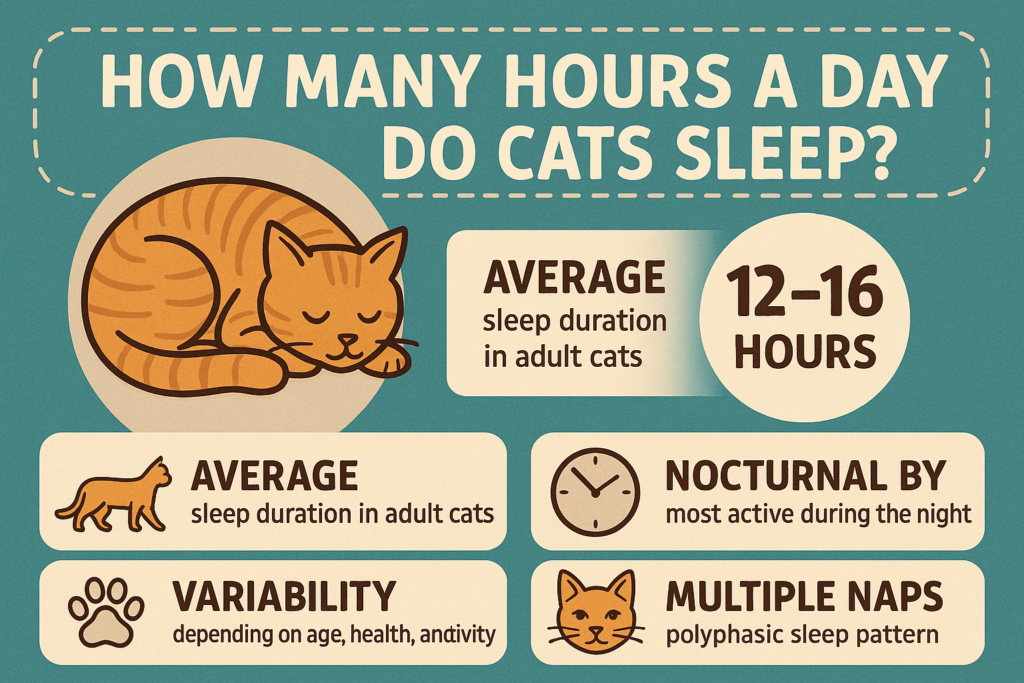
Is Your Cat Sleeping Too Much?
While cats naturally sleep a lot, excessive sleeping can sometimes signal underlying health issues. Knowing what’s normal versus abnormal is key to keeping your cat healthy.
Sudden Changes in Sleep Patterns:
If your cat suddenly starts sleeping significantly more or less than usual, it could indicate illness or stress. Monitor their behavior closely.Lethargy and Lack of Interest:
A cat that sleeps excessively and shows no interest in play or eating may be unwell. Consult your vet if you notice these signs.Environmental Stressors:
Changes in routine, such as moving homes or introducing new pets, can disrupt a cat’s sleep cycle temporarily. Addressing stressors can restore balance.Weight Gain or Loss:
Overeating or lack of exercise due to excessive sleep can lead to weight changes. Ensure your cat stays active during waking hours.Underlying Medical Conditions:
Conditions like arthritis, diabetes, or hyperthyroidism can affect sleep patterns. Regular vet check-ups help catch issues early.
By staying vigilant, you can distinguish between normal cat behavior and potential red flags.
Check this guide 👉Why Is My Cat Sleeping So Much? Best 7 Expert Tips!
Check this guide 👉Why Wont My Cat Sleep With Me? Best 7 Expert Tips!
Check this guide 👉Why Does My Cat Sleep with Her Head in My Hand? Best 7 Tips
Factors Influencing Cat Sleep | Tips to Encourage Healthy Sleep Habits |
|---|---|
Nocturnal nature | Provide toys and activities during active hours |
Age (kitten vs. senior) | Adjust playtime based on energy levels |
Environmental temperature | Offer cozy, warm sleeping spots |
Diet and nutrition | Feed balanced meals to support energy needs |
Health conditions | Schedule regular vet visits for monitoring |
How to Create a Sleep-Friendly Environment for Your Cat
A comfortable and stimulating environment encourages healthy sleep patterns for your cat. Here’s how you can make your home a haven for rest and activity.
Provide Cozy Beds:
Place soft, elevated beds in quiet corners where your cat feels safe and undisturbed.Offer Scratching Posts and Toys:
Keep your cat entertained during their active hours to tire them out before naptime.Maintain a Consistent Routine:
Stick to regular feeding and play schedules to align with their natural rhythms.Limit Noise and Distractions:
Reduce loud noises or disruptions in areas where your cat likes to sleep.Create Warm Spaces:
Use blankets or heated pads to provide warmth, especially during colder months.
A thoughtfully designed space supports your cat’s natural sleep tendencies while keeping them engaged and content.
Fun Facts About Cat Naps
Cats’ sleeping habits are not only practical but also full of quirky and fascinating details. Here are some fun facts to deepen your appreciation for their love of sleep.
Dreaming Like Humans:
Cats experience REM (rapid eye movement) sleep, which means they likely dream just like we do.Short Bursts of Deep Sleep:
Most of a cat’s sleep consists of light napping, interspersed with short periods of deep rest.Adaptability to Surroundings:
Cats can adjust their sleep duration based on environmental factors, such as noise levels or household activity.Sleeping Positions Reveal Personality:
Whether curled up, stretched out, or sprawled sideways, a cat’s sleeping position reflects their mood and comfort level.Historical Inspiration for “Cat Naps”:
The term “cat nap” originated from observing cats’ ability to take quick, restorative rests throughout the day.
These fun facts highlight the charm and complexity of feline sleep behavior.
Signs Your Cat Is Getting Enough Sleep
Ensuring your cat gets adequate rest is vital for their overall well-being. Look out for these signs that indicate they’re sleeping enough.
Energetic Playtime:
A well-rested cat will show enthusiasm during play sessions, engaging actively with toys and humans.Healthy Appetite:
Cats who sleep sufficiently tend to eat regularly and maintain a stable weight.Bright Eyes and Alertness:
Well-rested cats appear bright-eyed and attentive during their active hours.Regular Grooming Habits:
Adequate sleep allows cats to focus on self-grooming, keeping their coat sleek and clean.Balanced Mood:
Proper rest contributes to a calm and affectionate demeanor, reducing irritability or aggression.
These signs confirm your cat is thriving thanks to their restful routines.
How to Bond with Your Sleeping Cat
Even though cats spend a lot of time sleeping, there are ways to bond with them during their downtime.
Gentle Petting:
Lightly stroke your cat’s fur while they nap to build trust and affection.Talking Softly:
Speak in soothing tones near your sleeping cat to reinforce your presence without disturbing them.Joining Nap Time:
Cats often enjoy sharing cozy spaces; joining them for a nap strengthens your bond.Providing Comfort Items:
Leave familiar blankets or clothing nearby to make their sleeping area feel secure.Observing Quietly:
Simply watching your cat sleep fosters a deeper connection as you learn their unique habits.
Bonding during sleep enhances your relationship and creates lasting memories.
Seasonal Changes in Cat Sleep Patterns
Seasons can influence how much and when your cat sleeps, adapting to environmental shifts.
Longer Sleep in Winter:
Cats sleep more during colder months to conserve energy and stay warm.Increased Activity in Spring:
Warmer weather and longer daylight hours often spark higher energy levels and shorter naps.Heat-Induced Lethargy in Summer:
Extreme heat may cause cats to seek shade and sleep longer to avoid overheating.Behavioral Shifts in Fall:
As temperatures cool, cats may adjust their sleep to match dwindling daylight hours.Consistency Despite Seasons:
Indoor cats experience fewer seasonal changes compared to outdoor cats, maintaining a steadier sleep schedule.
Understanding seasonal variations helps you anticipate and accommodate your cat’s needs year-round.
Frequently Asked Questions About Cat Sleep
How many hours a day do cats typically sleep?
Cats generally sleep 12 to 16 hours a day, with kittens and seniors sometimes sleeping up to 20 hours.
Why does my cat sleep all day and play all night?
Cats are crepuscular, meaning they are most active during dawn and dusk, leading to nighttime antics.
Should I wake my cat up during the day?
It’s best to let your cat follow their natural sleep cycle unless there’s a medical reason to intervene.
Do cats snore?
Yes, some cats snore due to relaxed airways, especially when sleeping in certain positions.
What should I do if my cat’s sleep pattern changes suddenly?
Consult your veterinarian to rule out potential health issues or stress-related causes.
Embracing Your Cat’s Love for Sleep
Cats’ penchant for sleep is one of their most endearing—and sometimes puzzling—traits. From their evolutionary instincts to their playful quirks, their sleeping habits reflect a blend of practicality and charm. By understanding how many hours a day cats sleep and what influences their rest, you can better care for your furry companion and create an environment that supports their natural rhythms. So, the next time you see your cat curled up in a sunbeam, take a moment to appreciate their unique ability to recharge and thrive through the art of the cat nap.
Understanding Cat Teeth Plaque: Best 7 Expert Tips! Discover expert advice on preventing plaque, maintaining your cat’s oral health, and ensuring a happy, healthy feline companion.
How Do Cats Cool Down? Best 7 Expert Tips! Discover how cats naturally regulate their body temperature and learn expert advice to keep your feline cool, comfortable, and safe in hot weather.
Cat Chicken Allergy: Best 7 Expert Tips! Discover expert advice on identifying, managing, and preventing chicken allergies in cats for a healthier, happier feline companion.
Understanding Non-Regenerative Anemia in Cats: Best 7 Tips! Learn causes, symptoms, and treatment options to support your cat’s health and manage this condition effectively.

